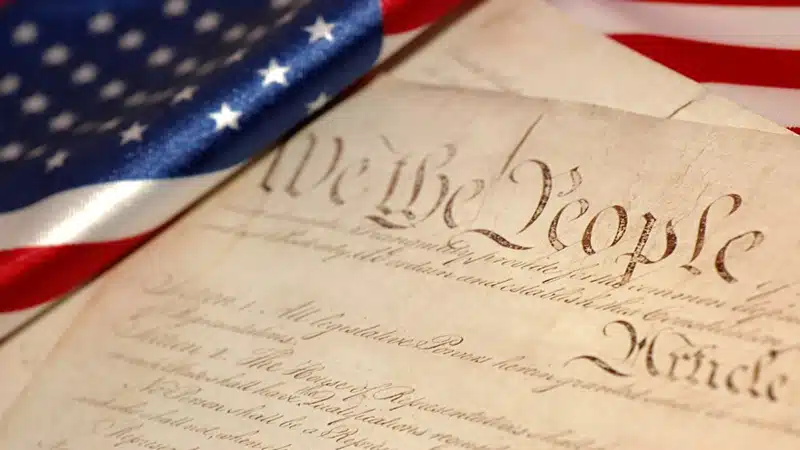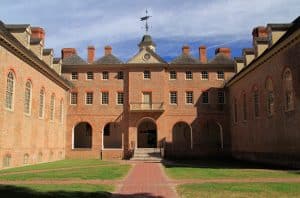The Pre-College Program in American History at William & Mary
Getting into your dream college can be a challenging journey, but it’s a journey well worth the effort. One way to stand out in the competitive college admission process is by demonstrating your passion for learning. In this blog, we’ll explore a practical path to achieving your academic dreams – the Pre-College Program in American History at the College of William & Mary.
This program provides a unique opportunity for students looking to enhance their knowledge of American history while gaining valuable college-level experience. So, if you’re eager to set yourself apart and prepare for college success, read on to discover what this program has to offer.
What Is The Pre-College Program in American History?
The Pre-College Program in American History at William & Mary is a unique educational opportunity that helps you prepare for college while delving into the fascinating subject of American history. It’s designed for high school students like you who are eager to learn and want to gain a competitive edge in the college admission process.
This program offers a range of college-level courses that challenge you academically and introduce you to the rigors of higher education. You’ll have the chance to study American history in depth, exploring various periods and themes. The coursework is intensive but rewarding, providing you with a taste of what college-level academics are like.
One of the program’s significant advantages is the opportunity to learn from experienced faculty members who are experts in their fields. You’ll engage in discussions, ask questions, and develop critical thinking skills that will serve you well in college and beyond.
Moreover, the program fosters a supportive community of like-minded peers. You’ll meet other students who share your passion for American history, creating connections and friendships that can last a lifetime. These connections can be valuable as you navigate your academic journey and college applications.
Participating in the William & Mary Pre-College Program in American History can be a decisive step in shaping your future and achieving your college goals. It’s a practical way to gain knowledge, experience, and confidence as you prepare for the exciting world of higher education. If you’re eager to set yourself apart in the college admission process and explore American history in-depth, this program is an excellent opportunity for you.
How Hard Is It to Get Into the Pre-College Program in American History?
Getting into the Pre-College Program in American History at William & Mary isn’t overly complicated, but it does require some effort and preparation on your part. The program is open to high school students like you who are genuinely interested in American history and eager to learn.
While there’s no specific GPA or standardized test score requirement, showcasing a strong academic record and genuine interest in American history in your application can increase your chances of being accepted.
It’s also essential to meet the application deadlines and ensure that all required materials are submitted correctly. Since the program values diversity and a range of perspectives, your unique background and experiences can work in your favor. The admissions team looks for students who are dedicated to learning and passionate about American history, so if you genuinely fit this description and put forth a well-prepared application, you have a solid chance of being admitted to this enriching program.
Reasons Why You Should Join the Pre-College Program in American History
Let’s discuss in great detail why you should consider joining the Pre-College Program in American History at William & Mary:
1. College-Level Academic Preparation:
When you join this program, you’re gaining access to college-level academics while still in high school. This means you’ll be challenged academically, which is a significant advantage when you eventually apply to college.
You’ll tackle rigorous coursework that not only deepens your knowledge of American history but also sharpens your critical thinking and analytical skills. The program’s experienced faculty members will guide you through these challenges, helping you develop the skills necessary for college success.
2. Explore Your Passion:
If American history is a subject you’re passionate about, this program is a perfect fit for you. You’ll have the opportunity to immerse yourself in your favorite subject and explore various periods and themes in American history.
Whether you’re intrigued by the founding of the nation, the Civil War, or contemporary issues, the program allows you to dig deep into the topics that captivate you. This experience can help you solidify your academic interests and potentially shape your future studies and career choices.
3. Stand Out in College Admissions:
In the competitive world of college admissions, distinguishing yourself is crucial. By participating in this program, you’re showing colleges that you’re not just another applicant. You’re someone who is proactive about learning and committed to academic excellence.
This can make a significant difference when it comes to securing a spot in your dream college. Your participation in the program sets you apart from other applicants who may not have had the same opportunities to engage in college-level coursework.
4. Build a Supportive Peer Network:
During your time in the program, you’ll be surrounded by like-minded peers who share your passion for American history. These connections can be invaluable as you navigate high school and plan for college. You’ll have the chance to engage in discussions, share ideas, and collaborate on projects, creating a supportive and motivating community. These friendships can extend beyond the program and provide a network of support as you embark on your college journey.
5. Gain Confidence and Independence:
Joining this program also fosters personal growth. It challenges you to step out of your comfort zone, engage with college-level content, and interact with professors and fellow students. This experience can boost your confidence and independence, giving you a taste of what college life will be like. You’ll learn how to manage your time effectively, take ownership of your education, and adapt to a more challenging academic environment. These skills are not only valuable for college but also for life beyond the classroom.
How to Get Into the Pre-College Program in American History
To apply to the Pre-College Program in American History at William & Mary, follow these steps:
1. Accessing the Application Portal: The first step involves navigating to William & Mary’s Application Portal. Here, you’ll need to create a new account if you haven’t previously applied to any programs at William & Mary.
This involves choosing a username and password. It’s essential to provide an email address that you regularly check, as this will be the primary mode of communication regarding your application. Remember, if you’ve applied before or have been issued a W&M Username and Banner ID, those credentials remain the same.
2. Starting a New Application: Upon logging in, you’ll see the option to start a new application. It’s important to accurately select the relevant options to ensure your application is processed for the correct program. You’ll select ‘Non-Degree Seeking’ for the type of application, ‘Undergraduate’ for the level, ‘Arts and Sciences’ for the school, and specifically, ‘NIAHD Pre-College’ for the program. The term you are applying for, such as ‘Summer 2024’, is also a crucial detail to specify.
3. Document Formatting and Upload: When it comes to uploading any documents as part of your application, you must ensure that the file names include your first and last names to avoid confusion. It’s also vital to avoid using special characters in the file names, as these can cause issues in uploading. Ensure that your documents are in a format that is widely supported, such as those compatible with Microsoft Office or Google Docs, to facilitate easy access by the admissions team.
4. Teacher Recommendation: This step involves requesting a recommendation from a teacher. It’s important to have a conversation with your teacher beforehand, explaining your interest in the program and why you are seeking their recommendation. Once you provide their contact information in the application portal, they will receive an email with instructions on how to submit their recommendation.
For non-native English speakers, an additional recommendation from an ESL teacher is required to assess your proficiency in English. It’s essential to follow up with your teachers to ensure they have received the email and understand the process.
5. Submitting Your Official High School Transcript: Your high school transcript is a crucial part of your application, as it showcases your academic history and achievements. The transcript should include your most recent grades. If your school operates on a block schedule or has unique grading periods, make sure to provide the necessary supplementary documentation, such as progress reports.
It’s important that these transcripts are sent directly from your school to be considered official. The process for sending transcripts can vary, so make sure to check the specific requirements, such as whether to send them via email or physical mail.
6. English Language Proficiency for Non-native Speakers: For students whose first language isn’t English, demonstrating proficiency in English is crucial, as the program is conducted entirely in English. This involves submitting TOEFL or IELTS scores that meet the minimum requirements.
It’s also recommended to submit SAT or ACT scores if available, as they can supplement your application. However, these cannot replace the requirement for TOEFL or IELTS scores. The additional letter of recommendation from an ESL teacher, as mentioned earlier, is also a part of assessing your English proficiency.
Throughout this process, it’s important to stay organized, keep track of deadlines, and ensure that all parts of your application reflect your capabilities and enthusiasm for the program. Good luck!
When are the Application Deadlines?
For the Pre-College Program in American History at William & Mary, the application deadlines vary based on your status:
- International Students: The deadline is 1 April 2024.
- Domestic Students for Session 1: The deadline is 15 May 2024.
- Domestic Students for Session 2: The deadline is 1 June 2024.
The application portal opened on 15 November 2023, and it’s important to note that NIAHD will begin sending admissions decisions in mid-February 2024. They will continue to review applications in the order they are completed and admit students until the program is full. However, for those who apply late, while NIAHD will still accept and review applications, there will be less time available to submit payment and registration forms.
This timeline means it’s crucial to apply as early as possible to increase your chances of admission and have ample time for the subsequent steps. Keep these dates in mind to ensure a smooth application process.
Cultural Diversity and Inclusion in the William & Mary Community
You all come from various backgrounds, cultures, and experiences, and this diversity is one of the strengths of the William & Mary community. Embrace the opportunity to engage with people from different walks of life. Be open to listening and learning from one another.
Engaging in conversations and activities with individuals of diverse backgrounds can broaden your horizons and enrich your college experience. Remember that diversity isn’t just about ethnicity, but also about different perspectives, ideas, and life experiences.
The William & Mary community actively promotes inclusion through a variety of initiatives, clubs, and organizations. Take part in these efforts to foster a welcoming and inclusive environment. Join clubs or student organizations that align with your interests or support diversity and inclusion.
Attend events and workshops that promote cultural understanding and celebrate different heritages. By actively participating in these initiatives, you contribute to creating a more inclusive community and make connections with like-minded peers who value diversity.
Respect is at the core of building an inclusive community. Treat everyone with kindness, empathy, and consideration, regardless of their background or beliefs. Be mindful of your words and actions to avoid unintentionally causing harm or offense.
Cultivate cultural sensitivity by educating yourself about various cultures and traditions. Understanding and appreciating differences will help bridge gaps and promote a sense of belonging for everyone. Remember that inclusivity is not a one-time effort but an ongoing commitment to creating a supportive community.
When is the Next Pre-College Program in American History?
As a participant in the Pre-College Program in American History at William & Mary, you’ll be immersed in a rich and rigorous academic experience that spans three weeks. The program is structured into two sessions: Session 1 from June 16 to July 6, and Session 2 from July 7 to July 27.
Each session offers two distinct courses, each worth four college credits. You’ll be asked to select your preferred session and course when applying. All courses are residential and held on the William & Mary campus. This program is designed for students who have completed at least their sophomore year of high school by the start of the program, including rising juniors, seniors, and college freshmen.
Session 1: June 16 – July 6
History 216: Artifacts of American History
In this course, you’ll explore history through material objects, using artifacts as primary sources to understand the past. The course covers a wide range of objects, from small utilitarian items like pins and nails to large structures such as houses and landscapes. You’ll engage in methods used in archaeology, historic preservation, conservation, and curation.
The course aims to develop your skills in historical thinking, evidence-based reasoning, and interpreting diverse historical sources. You’ll learn to connect present-day people with the past through artifacts and understand the role of museums and curators in shaping historical knowledge.
History 219: American Independence
This course commemorates the 250th anniversary of the revolutionary struggles of the 1770s and beyond. You’ll explore the impact of the era on liberty, democratic governments, minority religious rights, women’s rights, laborers, small businesspeople, and routes to emancipation from slavery.
The course involves daily case studies, encouraging you to engage in historical debates and perspectives. You’ll develop skills in analyzing and interpreting historical sources, museological communication, leadership, and civic engagement. The course also provides a platform to critically consider the historical and contemporary understanding of the events of the 1770s.
Session 2: July 7 – July 27
History 217: The Road to the American Revolution
This course begins in the Chesapeake Bay area, exploring the encounters and conflicts among Virginia Indians, English colonists, and enslaved Africans. You’ll delve into the economic, social, and architectural origins of Chesapeake plantations and towns. The course also examines the reasons behind the American Revolution and the diverse experiences of different groups during this period. By the end of the course, you should be able to analyze and interpret primary and secondary sources, understand the roles of various groups in colonial Virginia, and evaluate their involvement in the American Revolution.
History 218: The Road to the United States Civil War
Starting in the 1780s, this course examines the aftermath of the Revolutionary War and the establishment of new systems of government in Virginia and the United States. You’ll explore the intertwined ideas of race, gender, and class, and how these shaped the social, political, and physical landscape of Virginia.
The course addresses the buildup to the Civil War and its legacies. By the end of this course, you’ll be able to analyze and interpret historical sources, describe the formation of the U.S. government, and evaluate the experiences and legacies of the Civil War.
Making the Most Out of the School Resources When Attending the Pre-College Program in American History
Let’s discuss how to make the most out of the school resources when attending the Pre-College Program in American History at the College of William & Mary.
1. Leverage Faculty Office Hours: One valuable resource you should take full advantage of during your time in the Pre-College Program is the availability of your professors during their office hours. These hours are designated specifically for students like you to seek help, clarification, or engage in discussions beyond the classroom.
Don’t hesitate to attend these sessions. It’s a great opportunity to ask questions, delve deeper into the subject matter, and build a strong rapport with your instructors. Remember, they are there to support your learning journey, and engaging with them can enhance your understanding of American history.
2. Explore the College’s Libraries: The College of William & Mary boasts extensive libraries and research facilities that are at your disposal. Make it a point to explore these resources. You’ll find a wealth of books, journals, primary sources, and digital archives related to American history. Spend time in the library, conduct research, and familiarize yourself with the cataloging systems.
Librarians are also valuable assets; don’t hesitate to ask them for help in finding relevant materials or navigating databases. Whether you’re working on a research project or simply looking to expand your knowledge, the library is an essential resource.
3. Join Study Groups: Collaboration with your fellow students is another key resource to tap into. Form or join study groups with your peers in the Pre-College Program. Studying together allows you to exchange ideas, clarify doubts, and gain different perspectives on American history topics. You can collectively review lecture notes, discuss readings, and quiz each other.
This collaborative approach not only deepens your understanding but also fosters a supportive learning environment. Remember that you all share a common interest in American history, making it easier to engage in meaningful discussions and collective learning.
4. Attend Guest Lectures and Workshops: Throughout the program, there will likely be guest lectures and workshops conducted by experts in the field of American history. These sessions provide a unique opportunity to gain insights from scholars and professionals beyond your regular coursework. Make it a point to attend as many of these events as possible.
You’ll learn about the latest research, trends, and real-world applications of American history. Moreover, engaging with guest speakers can open doors to networking and potential mentorship opportunities. Take notes, ask questions, and actively participate in these sessions to maximize the knowledge and connections you can gain.
5. Utilize Online Resources: In today’s digital age, online resources are invaluable tools for enhancing your learning experience. The College of William & Mary likely offers access to various online databases, research tools, and academic journals. Make sure you explore and use these resources extensively.
You can access historical documents, academic papers, and multimedia materials related to American history from the comfort of your computer. Additionally, consider joining relevant online communities or forums to discuss topics, share insights, and seek advice from other history enthusiasts.
How the Pre-College Program in American History Helps You in College Applications
The Pre-College Program in American History at William & Mary can significantly assist you in your college applications. Here’s how it can be beneficial:
Firstly, this program demonstrates your commitment to academic excellence and your willingness to challenge yourself. When you mention your participation in this program on your college application, it signals to admissions officers that you are proactive about your education.
It shows that you’re not just meeting the basic requirements but actively seeking out opportunities to expand your knowledge and skills. This can make you a more appealing candidate to colleges, as they seek students who are passionate about learning and willing to go above and beyond.
Secondly, the program provides you with an opportunity to showcase your academic abilities. The coursework is designed to be academically rigorous, and your successful completion of the program reflects your ability to excel in a college-level environment. This can be particularly advantageous if you perform well in these courses, as it gives you concrete evidence to include in your application, such as high grades and recommendations from program faculty who can speak to your academic capabilities.
Furthermore, the program’s immersive nature allows you to develop critical thinking, communication, and analytical skills. These are qualities that colleges value in their applicants. When you articulate how the program challenged you and helped you grow as a student, it not only enhances your application but also provides you with valuable content for your personal statement or essay.
You can draw on your experiences in the program to demonstrate your passion for American history and your ability to overcome academic challenges, making your application more compelling.
Lastly, the Pre-College Program at William & Mary fosters a supportive community of peers who share your interests. This can lead to strong letters of recommendation from program faculty or peers who have observed your dedication and contributions.
Additionally, the program may provide networking opportunities with college admissions officers who visit or collaborate with the program, allowing you to establish connections that can be advantageous during the application process.
The Role of Learning American History in the Personal Development of the Student
The study of American history plays a significant role in your personal development. It goes beyond textbooks and lectures; it’s about understanding the roots of your nation, its values, and how those historical events continue to shape the present. Let’s delve into the substantial impact that learning American history can have on your personal growth.
First and foremost, delving into American history allows you to connect with your cultural heritage and identity. As you explore the past, you’ll uncover the stories of diverse individuals who have contributed to the development of the United States.
Whether it’s the struggles of early settlers, the Civil Rights Movement, or the achievements of influential figures like Martin Luther King Jr. or Susan B. Anthony, you’ll find role models and heroes who have fought for justice and equality. These stories can inspire you all to become informed and active citizens who strive to make a positive impact on your communities.
Furthermore, learning American history equips you with critical thinking skills. Analyzing historical events, understanding their causes and effects, and evaluating primary sources teach you to think critically and discern fact from fiction.
This ability to scrutinize information is invaluable in today’s information age, where misinformation and fake news abound. By studying history, you develop a keen sense of skepticism and a thirst for reliable sources, which are skills that serve you well in your academic and personal life.
Moreover, the study of American history fosters empathy and cultural sensitivity. As you learn about different time periods, you encounter the experiences of people from various backgrounds, ethnicities, and socioeconomic classes. This exposure enables you all to better understand the struggles and triumphs of others and to appreciate the diverse tapestry of American society. Empathy is not just a historical skill but a life skill, and it can significantly enhance your personal relationships and your ability to collaborate with people from different walks of life.
In addition to empathy, studying American history provides a profound sense of context. You learn how your nation fits into the global landscape and how its actions have influenced other countries and vice versa.
This global perspective is crucial in an interconnected world where international relations and global challenges are increasingly important. It empowers you all to engage in informed discussions and decision-making processes that transcend national borders, which is a valuable skill for future leaders and citizens.
Furthermore, the study of American history encourages you all to engage in civic participation. Learning about the struggles for civil rights, women’s suffrage, and the labor movement, among others, shows you the power of activism and advocacy.
You can draw inspiration from historical figures who used their voices and actions to effect change. By studying their stories, you all can discover your own passions and causes worth fighting for, whether it’s environmental conservation, social justice, or political reform. Understanding the power of civic engagement is an essential step in your personal development as an active and responsible citizen.
Another vital aspect of learning American history is the development of communication skills. History often involves interpreting and conveying complex information. You all will practice writing well-structured essays, making persuasive arguments, and delivering compelling presentations.
These skills are not only valuable in academic settings but are transferable to various aspects of your personal and professional lives. Effective communication enables you to articulate your ideas, influence others, and build strong connections.
Moreover, the study of American history fosters a sense of resilience. History is replete with stories of individuals and communities overcoming adversity, whether it’s during times of war, economic hardship, or social upheaval.
By learning about these moments, you gain insights into the human capacity for resilience and adaptability. You all can draw strength from these historical examples when facing challenges in your own lives, knowing that people before you have overcome seemingly insurmountable obstacles.
Additionally, the study of American history helps you develop a global awareness. As you learn about the history of your nation, you’ll also explore the interconnectedness of the world. You’ll discover how events in one part of the globe can have far-reaching consequences elsewhere. This global perspective broadens your horizons, making you all more informed and empathetic citizens of the world. It encourages you to consider the implications of your actions on a global scale and to work towards solutions that benefit not only your nation but also humanity as a whole.
Lastly, the study of American history instills a sense of responsibility. Learning about the mistakes and triumphs of the past reminds you that history is not a passive subject but a living narrative shaped by the choices of individuals and societies. By understanding the consequences of past actions, you all are better equipped to make informed decisions in your personal and civic lives. This sense of responsibility encourages you to actively engage in shaping the future of your nation and the world.
Final Thoughts
In the pursuit of your college dreams, every opportunity to excel counts. The William & Mary Pre-College Program in American History offers a practical, immersive experience that can make a significant difference in your journey toward higher education.
By participating in this program, you’ll not only deepen your understanding of American history but also gain valuable insights into college-level academics. The program’s benefits extend beyond the classroom, providing you with a supportive community of like-minded peers and the chance to network with experienced faculty.
As you prepare for the next steps in your education, consider the William & Mary Pre-College Program in American History as a stepping stone to your college success. Take action, explore, and unlock your full potential. Your dream college may be closer than you think, and this program could be the key to making it a reality. We wish you the best of luck in your academic pursuits and the exciting road ahead!
How AdmissionSight Can Help You With College Admissions
AdmissionSight is a college consulting firm that provides personalized assistance to students throughout the college admissions process. Here are some ways that AdmissionSight can help you:
Admissions strategy: AdmissionSight can help you develop a strategic plan for your college application process. Our professional consultants can assist with identifying schools that are a good fit for your academic, extracurricular, and personal goals and help you plan and prioritize your application strategy.
Application review: AdmissionSight can review your application and provide feedback on how to improve it. We can offer suggestions on making your application stand out and highlighting your strengths and unique qualities.
Essay coaching: AdmissionSight can help you craft compelling essays that showcase your personality, goals, and achievements. We can guide you through the essay writing process and provide feedback on your drafts to help you refine your writing.
Interview preparation: AdmissionSight can provide interview coaching to help you feel confident and prepared for college interviews. Our experts can offer tips on how to present yourself professionally and how to answer common interview questions.
Extracurricular planning: AdmissionSight can help you plan and develop your extracurricular activities to make them more impactful and meaningful. We can suggest activities that align with your interests and goals and provide guidance on demonstrating your leadership and initiative.
Overall, AdmissionSight can provide valuable guidance and support throughout the college admissions process to help you maximize your chances of getting accepted into the college of your choice.
With a high success rate of over 75%, we have built a strong network in the past decade. Book an initial consultation today, free of charge!











































